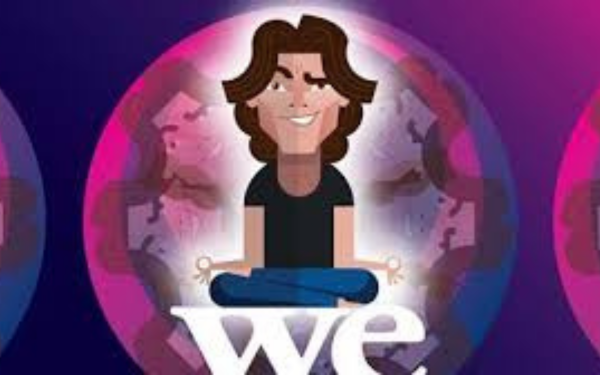WeWork: A Meteoric Rise
WeWork’s story is a roller coaster. It tells a tale of big dreams, rapid growth, and a sharp fall. Maybe it’s also a lesson in how organizations, much like humans, go through cycles of life and death. Some fall and rise again, while others become a brief flash in the pan.
WeWork entered the scene with a fresh, innovative idea of co-working in 2010. Shared workspaces were more than just a place to work; they were a community, a “cool” hot spot for freelancers, startups, and companies.
Co-founders Adam Neumann and Miguel McKelvey created a buzz, and WeWork’s spaces became synonymous with creativity and collaboration.
Low-interest rates made their business model shine. By 2014, the company was worth over $1 billion, and was heralded a shining star in the business world.
But with the rise came scrutiny. Neumann’s egomaniacal leadership and the company’s financial troubles began to sour the once-appealing brand. The fall of WeWork was not just a decline in valuation but a shift in customer perception.
The allure of working in a trendy, energetic environment drew many to WeWork’s doors. It was a place to network, to innovate, and to be part of something exciting. But as the company’s financial woes became public, and Neumann’s erratic behavior was exposed, the glamour began to fade.
Customers started to see WeWork not as a hot spot but as a cautionary tale. The community that once felt vibrant now seemed unstable. The very concept that had made WeWork appealing was now its Achilles’ heel.
From Cool to Cautionary
WeWork’s rise and fall offer real-life examples of how quickly customer perceptions can change and how fragile trends can be. It’s a lesson in adaptability, in understanding that what’s “cool” today may not be viable tomorrow.
The story of WeWork carries broader implications for the future of work. The shift from the traditional office to flexible workspaces reflected a changing work culture, embracing collaboration, flexibility, and innovation. But WeWork’s crash serves as a reminder that trends are fleeting, and future business models need a solid foundation and conscious leaders.
Sandeep Mathrani became CEO in 2020. He tried to ‘fix’ things, but then COVID-19 happened. Demand for office space dropped like a stone in water. As the pandemic further shifted the work landscape towards remote and hybrid models, the need for shared spaces declined. The balance between flexibility and stability, between community and solitude, is now being reevaluated.
The company’s business model of “renting long and subleasing short” exposed WeWork to considerable risk, magnified by the shifts in how we work and the rapid rise in global interest rates. The proliferation of work-from-home policies led to excess supply and softer demand, with interim CEO David Tolley battling macroeconomic volatility.
Implications for the Future of Work
WeWork’s story will be remembered not just for its meteoric rise and stunning collapse but for its impact on how we think about work. It’s a lesson in the dangers of unchecked ego in leadership. And at the same time, how egos are fed over and over unfortunately.
In 2017 and 2019, SoftBank poured $18.5 billion into WeWork. The company’s value skyrocketed to $47 billion. People thought an IPO was around the corner. And in October 2019, SoftBank bought 80% of WeWork and added $5 billion. Jobs were cut, and the IPO delayed.
SoftBank Group’s founder, Masayoshi Son, later reflected on the investment, saying, “It was foolish of me to invest in WeWork. I was wrong.” The New York Times warned that WeWork’s failure could have a “sizable impact” on the commercial real estate industry.
But the story of WeWork is not just about a company’s rise and fall. It’s a real-life example of how quickly fortunes can change in the business world.
A Lasting Legacy
WeWork’s future remains uncertain, yet its story will long be remembered as a lesson in risk, adaptability, and the ever-changing nature of our world. It reminds us all to be vigilant, flexible, and prepared for unexpected twists and turns, not just in business but in life itself.
But perhaps most importantly, WeWork’s tale is a reflection of our evolving work culture. It’s a snapshot of a moment in time when work was not just a place to earn a paycheck but a community to inspire and be inspired.
As we move forward, the questions raised by WeWork’s journey remain relevant. How do we lead with purpose and create solid foundations? How do we create communities around shared purpose? And how do we embrace the future of work and create healthy systems?
WeWork’s legacy is complex, and its lessons are many. Its story is a part of our collective journey towards an emerging healthy new world of work, filled with both opportunities and cautionary tales. It reminds us that there will always be people chasing the shiny new trend but what many of us want is a meaningful path with true caring and collaboration.


